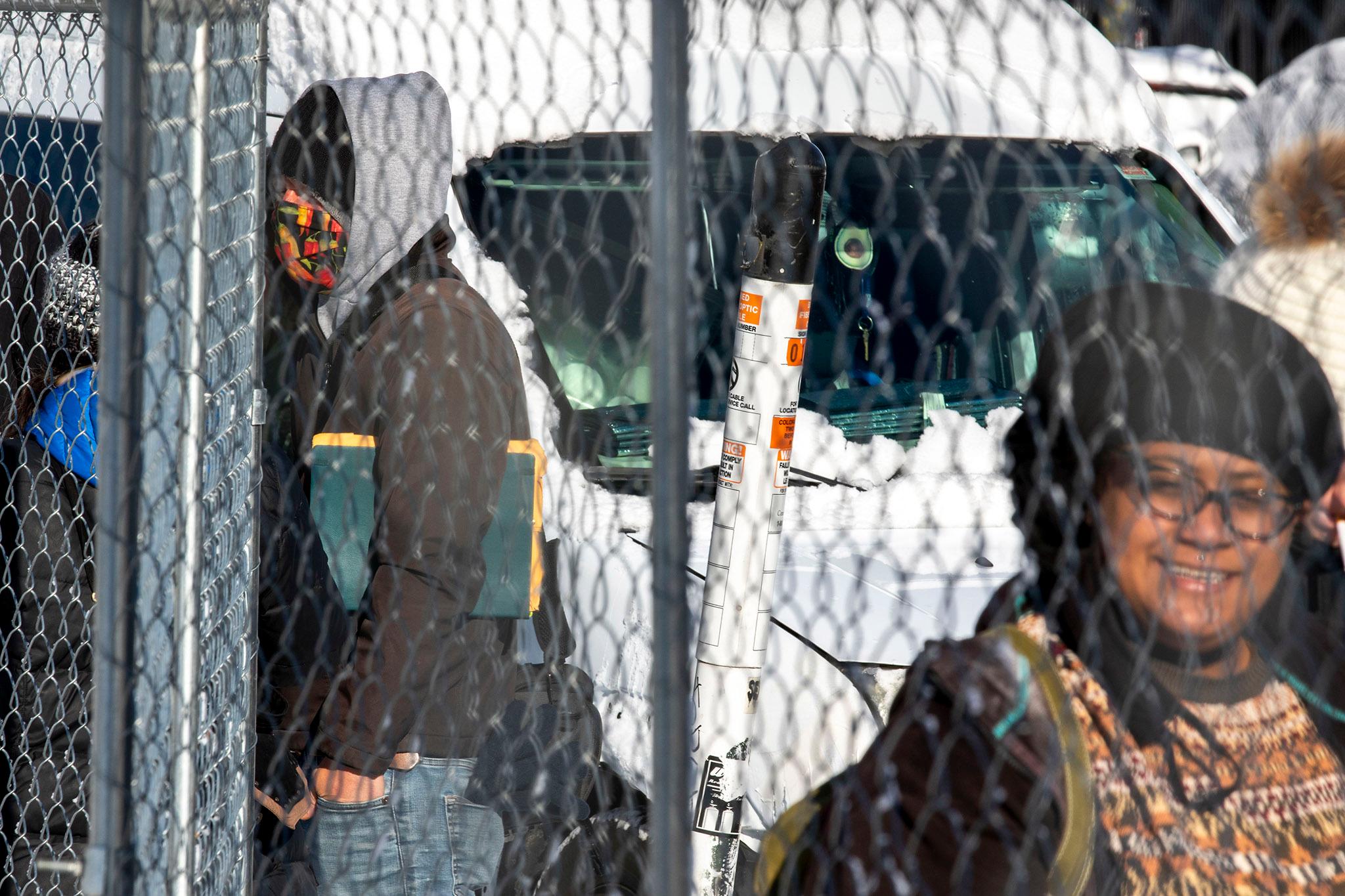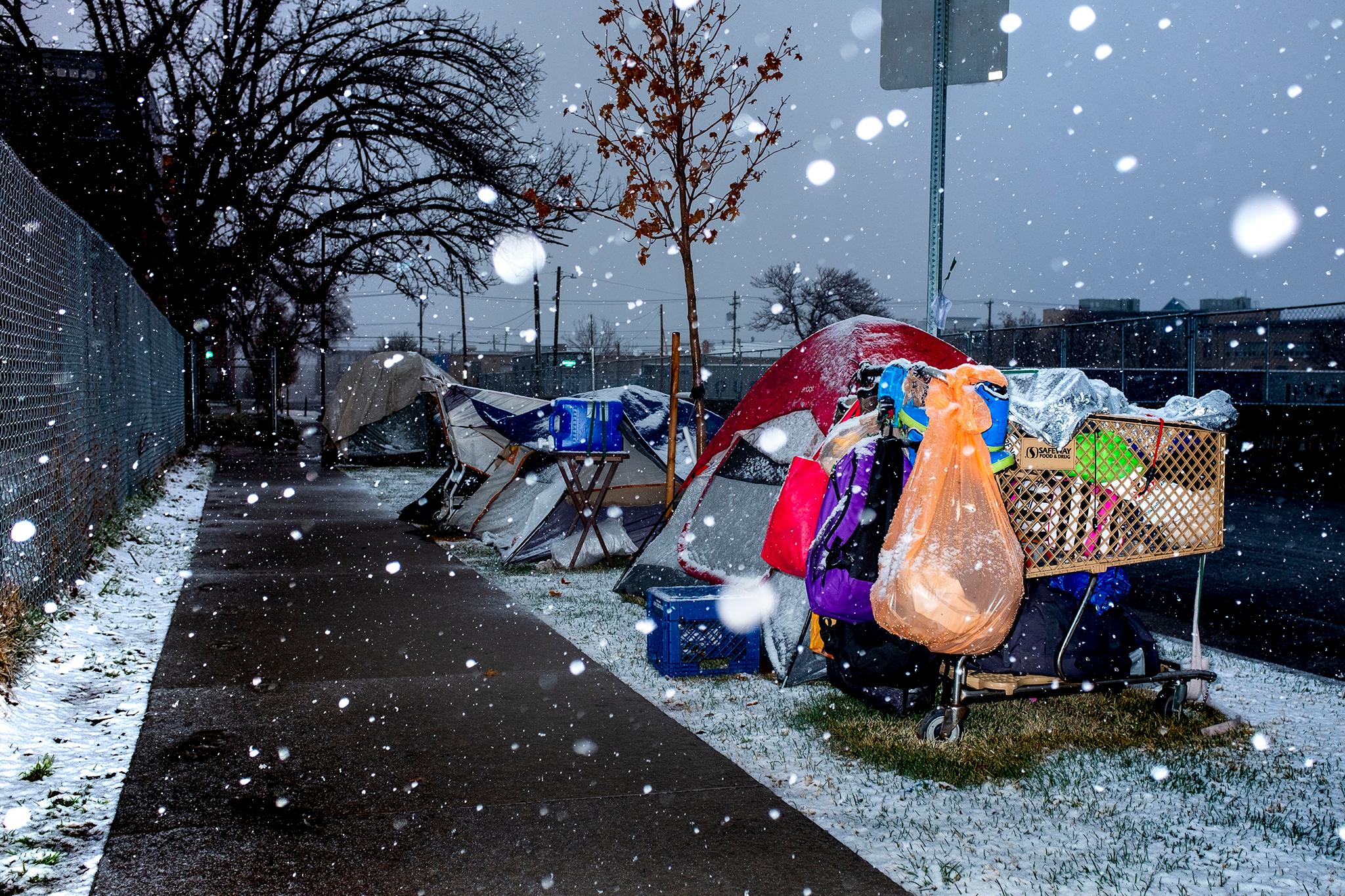Advocates for Denver's unhoused, who have been pushing against the city's encampment sweeps for some time, were bracing for a difficult morning on Tuesday. They knew officials had planned to forcibly remove people camping near Stout and 20th Streets, though it was clear temperatures would plummet by then as a cold front moved across the state.
Then, late Monday night, John Staughton got word the sweep was canceled. He's a housing activist who led a research project last year to pin down how often the city forces people to move along.
"The delay until the middle of the night last night was inappropriate," he told us on Tuesday. "That was pretty frustrating. We've been trying to talk to the city about that since last Thursday."
Staughton said he knew "multiple people" who lost fingers and toes after they were forced to move camp during freezes this time last year. Though he and his colleagues have raised $4,000 to move people into motels this week, Staughton was adamant that forcing people to pack up their tents isn't the right way to protect them from the elements.
Mike Strott, spokesperson for Mayor Hancock's office, confirmed the sweeps were canceled due to "extreme cold."
He added that soft outreach to get people into shelters "happens daily regardless of the weather."
Britta Fisher, Denver's chief housing officer, told us 2,100 people slept in shelters on Monday night, and that the system still has capacity to fit more people. She said anyone who needs a place to go should head to the Denver Rescue Mission's Lawrence Street Shelter, where buses will take them to a shelter with space.
"We made a decision several years ago, as we looked at the three-year sheltering strategy, to shelter toward peak demand and not for times of low demand," Fisher told us. "We believe we have adequate room at this moment, and if there is a surge in demand, we also have our plans available to accommodate more guests as they appear."
Hancock has been clear that his administration will not allow street camping in the city, though affordable housing has long been in short supply. We asked Fisher what would happen to the capacity of the shelter system if the administration successfully stopped people from pitching tents along side walks. Would the system be near capacity? Like it is right now?
She didn't answer the directly.
But she said Denver "always" has the ability to increase capacity if more people decide to use shelters.
"We will gladly take everyone inside that we can, every night that we can, and we have those beds available."
The city also announced Tuesday afternoon that people are allowed to warm up in recreation centers during regular daytime operating hours through Thursday. However, they'll be kicked out after dark.
While Staughton said activists are glad the sweeps were canceled this week, they're not convinced officials are doing enough.
Staughton is concerned some people might not know to catch a bus at the Rescue Mission and end up somewhere without enough beds. There are open beds across town, but many are far from places people generally find services.
Finding a warm place "shouldn't be a journey," he said.
The Salvation Army's Crossroads shelter (off Brighton Boulevard) is prepared to house up to 160 more men than they have beds. But, Staughton says, "sleeping on metal benches" inside the shelter would not be ideal.

Even outside of this week's extreme cold, he's been disappointed in Denver's progress on these issues.
For example, City Council voted to give the Colorado Village Collaborative $3.9 million to continue operating safe outdoor campsites in the city, but the money will only open one new site. Staughton argues Denver needs more safe outdoor spaces because they provide more stability than shelters.
"If we had one in every district, you'd have half as many people on the street."
In the meantime, he and his colleagues are leaning into mutual aid, rather than city services, to keep people from freezing.












